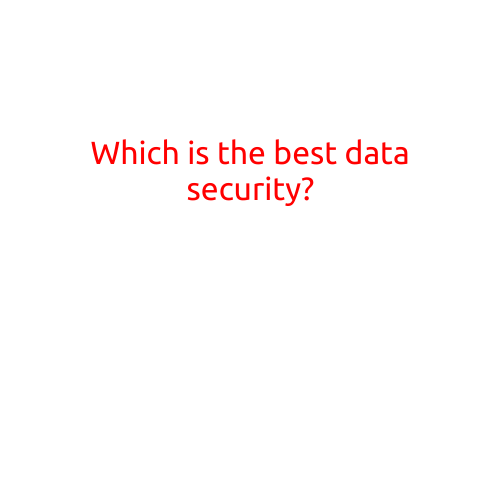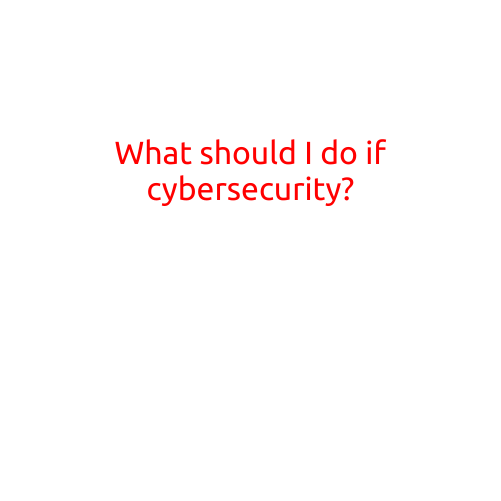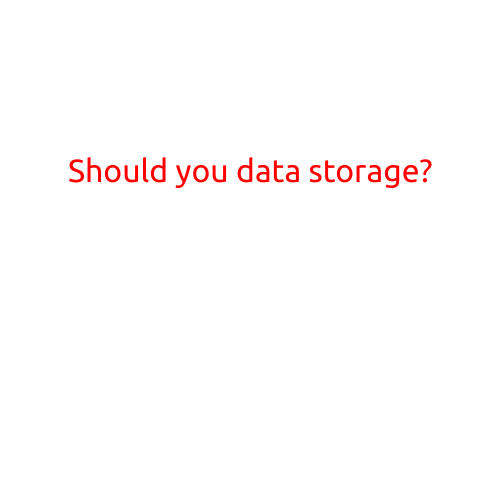
Which is the Best Data Security?
In today’s digital age, data security has become a top priority for individuals and organizations alike. With the constant risk of cyber threats and data breaches, it’s essential to ensure that your sensitive information is protected from unauthorized access. But with so many data security options available, it can be overwhelming to choose the best one. In this article, we’ll explore the different types of data security and help you determine which one is the best for you.
Types of Data Security
- Encryption: Encryption is the process of converting plaintext data into a coded format that can only be deciphered with the correct decryption key or password. There are two main types of encryption: symmetric and asymmetric. Symmetric encryption uses the same key for encryption and decryption, while asymmetric encryption uses a pair of keys, one for encryption and the other for decryption.
- Firewalls: Firewalls are network security systems that monitor and control incoming and outgoing network traffic based on predetermined security rules. They can be hardware-based, software-based, or a combination of both.
- Antivirus Software: Antivirus software is designed to detect, prevent, and remove malware from a computer or network. It scans for viruses, Trojan horses, worms, and other types of malicious code.
- Access Control: Access control refers to the process of controlling who has access to sensitive data and systems. This can be achieved through passwords, biometric authentication, or smart cards.
- Data Loss Prevention (DLP): DLP is a technology that monitors and controls the flow of sensitive data, detecting and preventing unauthorized data transfers, both inside and outside an organization.
Which is the Best Data Security?
While all of the above data security options are important, encryption is often considered the best data security due to its ability to protect data at rest and in transit. Encryption safeguards sensitive information, such as financial data, personal identifiers, and intellectual property, from unauthorized access.
Advantages of Encryption
- Data Confidentiality: Encryption ensures that only authorized parties can access and read sensitive information.
- Data Integritt: Encryption verifies the integrity of data, ensuring that it has not been tampered with or altered during transmission.
- Data Authentication: Encryption verifies the identity of the sender and recipient, ensuring that data is coming from a trusted source.
Best Practices for Data Security
- Use Strong Passwords: Use strong, unique passwords for all accounts and consider implementing multi-factor authentication.
- Keep Software Up-to-Date: Regularly update your operating system, browser, and software to ensure you have the latest security patches and features.
- Use Antivirus Software: Install and regularly update antivirus software to detect and remove malware.
- Use Encryption: Use encryption to protect sensitive data at rest and in transit.
- Monitor and Audit: Regularly monitor and audit your data security systems to detect and respond to potential breaches.
Conclusion
Choosing the best data security solution depends on your specific needs and requirements. Encryption is often considered the best data security option due to its ability to protect data at rest and in transit. However, it’s essential to implement a comprehensive data security plan that includes a combination of encryption, firewalls, antivirus software, access control, and DLP. By following best practices and staying up-to-date with the latest security threats and technologies, you can ensure the security and integrity of your sensitive data.





